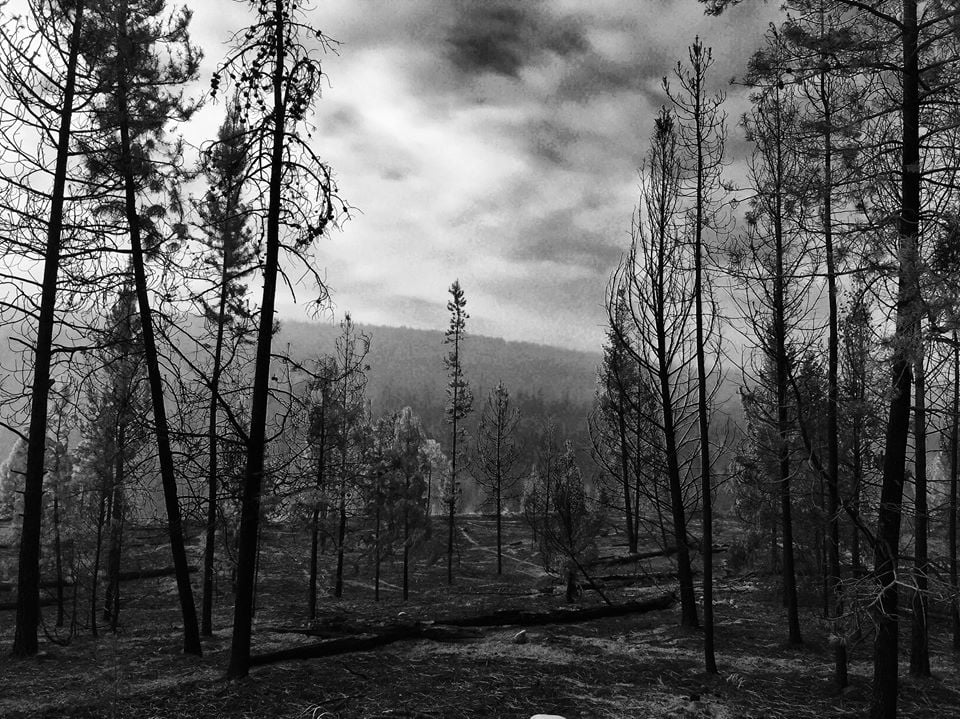Interior communities affected by the record-breaking B.C. wildfires last year have provincial funding at their disposal but no strategy yet for how the money should be distributed.
The provincial government is allocating $72 million over three years “to help with the recovery of communities and landscapes that were affected by the 2017 wildfires,” according to a spokesperson from the Ministry of Forests, Lands, Natural Resource Operations and Rural Development. The money is also meant to increase wildfire preparation through “wildfire risk reduction projects.”
Walt Cobb, the mayor of Williams Lake, which had to be evacuated at the height of the wildfire season, said the money should go to those most in need. But little has yet been distributed.
“As far as money spent from the government, yes, they committed the money and hired people to help us but there hasn't been a lot actually given out yet,” Cobb said. “We don’t just want to throw money at something, we want to make sure it’s spent in the right place so we can actually recover from this scenario.”
In August 2017, 20 separate fires 60 kilometres northwest of Williams Lake merged together to form the Plateau fire which covered over 500,000 hectares of land. It was the largest fire ever recorded in B.C. history and forced 24,000 from the city and the surrounding area to flee to safety.
“It has affected everybody differently,” Cobb said. “[The funding] is there to help small businesses along the way between here and Prince George. Whether it’s a release in taxes or what, we don’t know.”
The provincial government initiated an independent review last December of the 2017 wildfire and spring flood seasons. Over 1.2 million hectares were burned and 65,000 people were displaced as a result of wildfires, while 2,500 people were forced from their homes by flooding. The review team, chaired by former BC Liberal cabinet minister George Abbott and Skawahlook First Nation chief Maureen Chapman, is expected to deliver a report with recommendations by April 30.
Abbott said the review team has spoken with well over 1,000 individuals and many organizations over the past three months.
“The First Nations who have been living in motels and hotels who are waiting for the rebuilding of their houses are probably high on the list of people who need support the most,” Abbott said. “There are a lot of people who are of course affected by this, whether you’re a rancher, farmer… but when people have lost their homes, that’s probably the most difficult part of either flood or fire.”
This report will be used to guide the province’s approach to this year’s flooding and wildfire seasons, and the goal is to learn from the experiences of 2017 to improve the government’s systems, processes and procedures, according to the Forests Ministry.
The federal government also promised funding last year in the wake of the extraordinary wildfire situation, but that money has not yet appeared.
Trevor Kier, a wildfire recovery manager for the City of Williams Lake, said recovery will vary from community to community.
“Mental health is a big focus right not just in Williams Lake but across the province,” Kier said. “There is an increased demand for counselling, and counsellors who are already at capacity who are dealing with aftermath of the fire… we don’t have the increased staffing to deal with that. We’re looking at this as well and trying to be creative in how we address this.”
According to a spokesperson from the Ministry of Mental Health and Addictions, mental health support was available at the regional and provincial levels during last year’s fires.
At the regional level, volunteers from across the province with Northern Health, Interior Health, the Canadian Red Cross and Disaster Psychosocial Support were onsite to help provide mental health support for evacuees, according to the ministry.
At the provincial level, the Ministry of Health and the First Nations Health Authority created an inter-agency Mental Health and Wellness Committee to build partnerships with First Nations communities in providing mental health services.
The evacuations were particularly hard for First Nations elders, who were moved into
group lodging accommodations. There has also been an increase in social isolation and depression in seniors in evacuated communities. The Mental Health ministry said in some cases they aren’t asking for support as they may be assuming others need the support more and are not keeping up with personal care. ![]()
Read more: BC Politics, Environment
















Tyee Commenting Guidelines
Comments that violate guidelines risk being deleted, and violations may result in a temporary or permanent user ban. Maintain the spirit of good conversation to stay in the discussion.
*Please note The Tyee is not a forum for spreading misinformation about COVID-19, denying its existence or minimizing its risk to public health.
Do:
Do not: